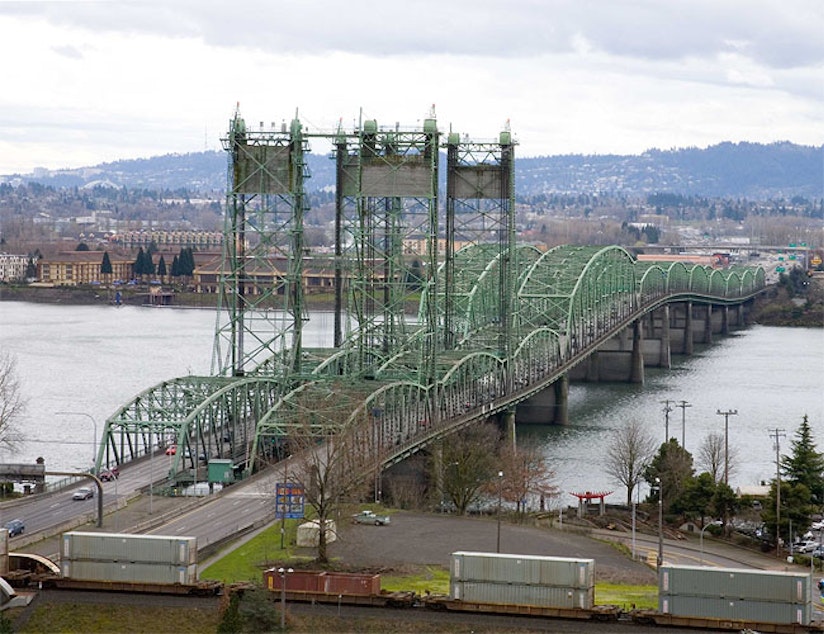Washington House jettisons exported fuel tax proposal that angered neighboring states

A proposed tax on gasoline and diesel delivered to out-of-state customers from Washington refineries has gone by the wayside. The Washington House of Representatives voted Tuesday night to jettison and replace the "exported fuel tax" after strong blowback from neighboring states.
The state House voted 52-45 to strip the offending tax out of a 16-year, $16.8 billion transportation infrastructure package. After hours of debate that lasted until nearly midnight, House lawmakers then sent the modified package back to the state Senate to iron out differences. Chief among them is whether a diversion of $100 million per year from a local government infrastructure loan fund is an acceptable replacement for the jettisoned fuel tax.
"As we listened, we heard some very serious concerns from our neighbors to the south, and our north and our east about what impacts this tax might have on their economy," said House Transportation Committee Chair Jake Fey (D-Tacoma) during a floor speech. "Taking those things into consideration, we felt that there had to be a different way of addressing our needs."
Many Republican lawmakers said the vote to scrap the export fuel tax would have been nearly unanimous were it not for the dislike of the proposed replacement. In any case, several legislators expressed relief that Washington would avert a possible trade war with its neighbors.
Over the past week, political leaders from Oregon, Alaska and Idaho roundly condemned the proposed new 6 cents per gallon wholesale tax targeting their drivers. An Alaska state representative introduced bills to retaliate with a surcharge on crude oil shipped to Washington refineries or new taxes on out-of-state fishing vessels that seasonally harvest in Alaskan waters.
Sponsored
Idaho Attorney General Lawrence Wasden approvingly retweeted the news of the fuel export tax's demise. Oregon state Rep. Shelly Boshart Davis (R-Albany) added an applause emoji to her retweet. In earlier testimony to Fey's Washington House committee, Boshart Davis said the tax was "an offensive proposal" that would force Oregonians to pay for Washington's infrastructure projects.
The now-stricken fuel export tax was among many funding sources cobbled together by majority Democrats to support a sprawling package of highway widening, transit improvements, high speed rail, ferry construction and bike lane additions. A $1 billion allocation for Washington's share of the cost to replace the old and seismically-vulnerable Interstate 5 bridges over the Columbia River between Portland and Vancouver remains the single biggest construction project in the proposal. The spending blueprint also includes a contribution toward a better bridge over the Columbia at Hood River, Oregon.
"We had the potential of having backlash from our good neighbors who we work so closely together with, that we're trying to build a bridge literally across a river with," noted state Rep. Andrew Barkis (R-Olympia) during debate on Tuesday.
Five large oil refineries along Puget Sound produce much of the motor fuel consumed in the Pacific Northwest. Oregon, in fact, relies on Washington for more than 90 percent of its gasoline and diesel, according to the U.S Energy Information Administration. Neither Oregon nor Idaho has an oil refinery within its borders. Oil-rich Alaska has one small refinery that doesn't produce enough to serve the whole state.
Legislative staff in Olympia estimated the proposed new export fuel tax would have brought in around $2 billion over the next 16 years, with the lion’s share coming from levies on gasoline and diesel delivered to Oregon. A smaller share based on smaller volumes of deliveries would have been borne by consumers in Idaho and Alaska.
Sponsored
All three affected neighbor states lodged complaints with Washington Gov. Jay Inslee about taxation without representation. The Idaho House of Representatives in a unanimously approved resolution flat out declared the proposed exported fuel tax as a violation of the U.S. Constitution's interstate commerce protections.
The proposed tax on other states’ fuel consumption allowed Washington state lawmakers to crow about how they were able to avoid a gas tax hike for their constituents, which is historically how major new state highway and ferry construction projects were financed.
The revised transportation infrastructure revenue and spending package still does not raise the state gas tax, but it attracted fresh controversy in recent days because of the new provision that siphons off big dollars from a state loan fund used by Washington cities and counties to build sewer, water, garbage and stormwater projects.
“This is a short-sighted proposal that will have negative consequences for our communities,” said Public Works Board Chair Kathryn Gardow, in a statement Monday that urged the legislature to find another funding source.
State Senate Republican Leader John Braun predicted during a press conference Monday there would be further outrage if the general public caught wind of the proposed “significant increases in fees” on driver license renewals and new and replacement plates.
Sponsored
“Their package has a lot of things that are going to really upset Washingtonians around the state,” the minority leader said.
Time is running short for the Democratic leaders in the Washington Legislature to finalize the transportation infrastructure package, which they have dubbed Move Ahead WA. The 2022 session is scheduled to wrap up by March 10 next week.
Copyright 2022 Northwest News Network

